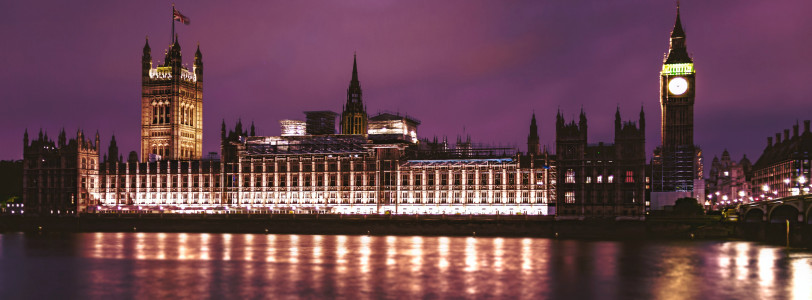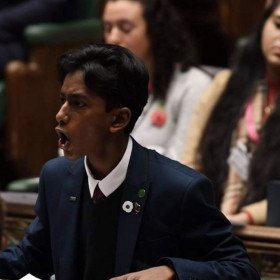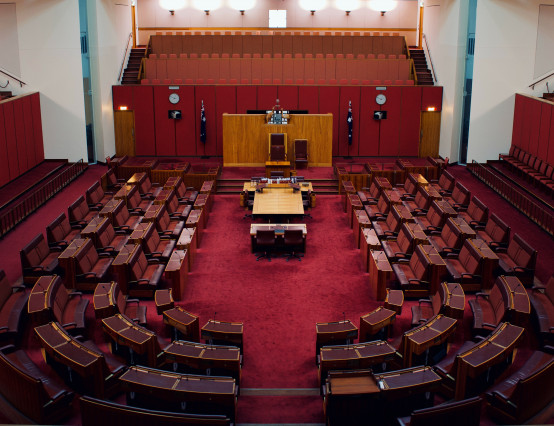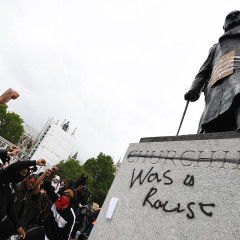The ‘United’ Kingdom has always been built on a tenuous union between four nations – which, while they share many similarities; also have very different cultures and histories.
I spent my first years in Wales, I go back there regularly, I passionately call myself Welsh, English and British. I firmly believe these identities can exist together. The union is stronger together, in terms of economics, defence and standing on the world stage among many others. A truly United Kingdom is better, but every healthy relationship needs a little space, and federalism provides that space.
In the last few years, the independence movement in Scotland has gone from strength to strength, and, even more surprisingly to me, Welsh independence is also on the rise (according to YouGov, 33% support independence, compared to 10-20% in the early 2000s). But I believe I have the solution, or at least part of it. Federalism is a concept that has existed for hundreds of years. It’s used today in Canada, Germany and of course the United States (among many others).
So what is federalism and why do I think it could save the union? Simply put, it is a significant transfer of power from central government (Westminster) to more local government (Edinburgh, Cardiff, Belfast etc). The powers that are handed down to the local (known usually as ‘state’) governments vary; but usually health, education, policing and sometimes taxes are handed to the individual states to control. The central ‘federal’ government retains influence over foreign policy, wars and other similar national issues.
Many of these are already ‘devolved’ issues under the current system, and you could make a case that we already have a pseudo-federal system. In particular, Scotland has almost every power that you would expect for a state government. A significant part of creating a federal system in the UK is window dressing, equalising the local parliaments (giving them all a consistent name and powers) and cementing their place as an integral part of the political system. Federalism is about sending a message that Westminster completely trusts local powers, and creating a logical, balanced system.
In the UK, this would involve giving the ‘state’ powers to expanded parliaments in Wales, Scotland, Northern Ireland, and more controversially England. There are two choices here: keep England as one individual ‘state’, or split the country into multiple regions, like the South East, Midlands and so forth.
Why would you split up England? Well, it’s population is simply too large for it to function with a similar governmental system to Scotland and Wales. Furthermore, if we’re talking about local issues at a local level, do we really trust Westminster to understand the issues that face the North?
In fact, this could be the key to fixing the long held opinion that Westminster doesn’t care about the North of England. Simply take the power and put it straight into the hands of the North. Imagine how powerful it would be to have a Northern Parliament sitting in Liverpool or Newcastle. It could be one of many necessary steps towards the regeneration of the North.
One of the biggest losers in the current system is England. It has no devolved government, so ‘England only’ issues are still voted on by Welsh, Scottish and Northern Irish MPs (in politics-speak this is known as the ‘West-Lothian question). English people should be the ones most fervently campaigning for a change in the system – they are the ones suffering.
The Welsh and Northern Irish governments have different powers to the Scottish government, who have different powers to Westminster, who have different powers to London and so on. Our current system is a total mess of inconsistencies and general weirdness. An officially federal Britain would simplify all of this.
Wales truly is the random variable in all of this. It’s a nation that is in love with its culture – the red dragon is still a proud symbol there today – but many, especially in the north still feel very, very British as well. Just a few years ago I never would have predicted an independent Wales, but if something isn’t done soon then that could well be the end result.
Federalism isn’t a guaranteed, best of both worlds, everything’s going swimmingly solution. But it is a step in the right direction – handing more control and trust to local people, especially in England, while maintaining the safety and security of the United Kingdom. It seems to me to be a sensible solution that may protect the union for many decades to come.









This! Though there's a lot more nuance to be had here on how a collective system would function it's exactly the conversation we should be having!
(also I think you mean south Wales not north, the north has been a strong hold for Plaid Cymru, the independence party, since its inception)